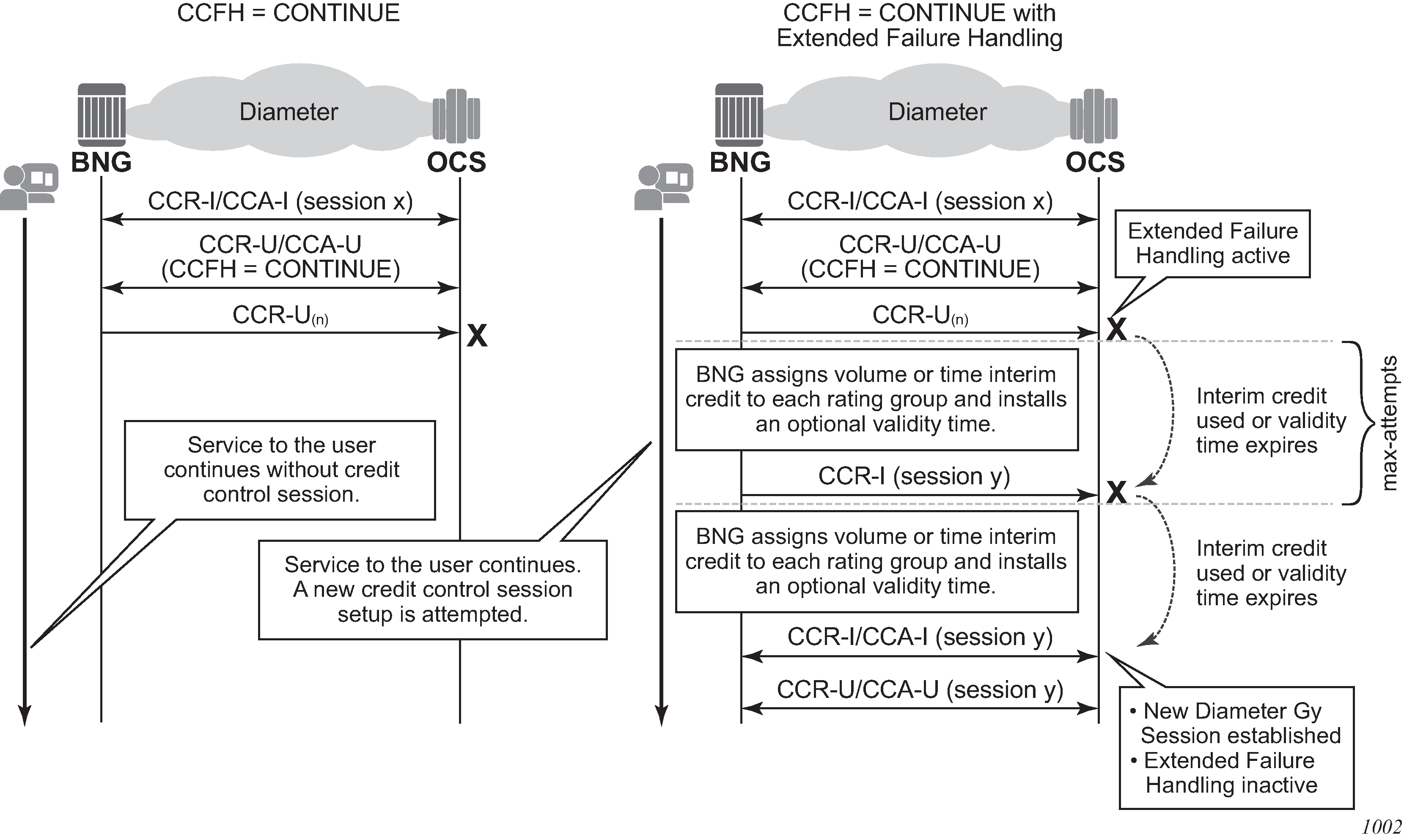In a Diameter Gy application, that is, a Diameter Credit Control Application (DCCA), Credit Control Failure Handling (CCFH) determines the behavior of a credit control client in fault situations. When the CCFH value is set to CONTINUE and a failure occurs, the credit control client first attempts a failover procedure. If failover is not enabled or not supported by both client and server, or the failover is not successful, the client deletes the credit control session and continues the service to the end user without the Diameter Gy session until the user disconnects.
Extended Failure Handling (EFH) enables the credit control client to establish a new Diameter Gy session with the Online Charging Server (OCS) in failure situations where CCFH is triggered and the CCFH value is set to CONTINUE.
The following occurs when EFH is enabled and the CCFH value is set to CONTINUE.
Service to the end user continues during failures (such as lost connectivity to the OCS).
A new Diameter Gy session is established when the failure is restored.
Usage information is kept up-to-date for reporting purposes (optional).
Figure: Extended Failure Handling (EFH) shows an example of EFH.

If a failure occurs when EFH is active, a preconfigured time interim credit or volume interim credit with an optional validity time is assigned to all rating groups. A new Diameter Gy session setup is attempted each time the interim credit is used or the validity time expires. The following occurs when an attempt to re-establish the Diameter Gy session is made.
The user session continues normally and EFH becomes inactive when the Diameter Gy session is successfully established with the OCS.
A new interim credit with optional validity time is assigned to all rating groups if the Diameter Gy session is not established with the OCS.
The user session is terminated if the Diameter Gy session is still not established with the OCS after a configurable maximum number of attempts.